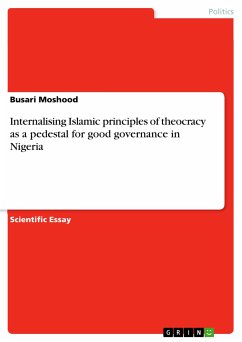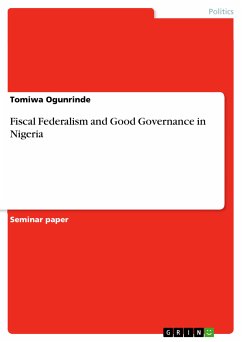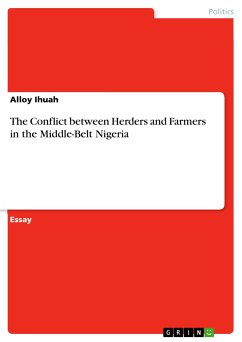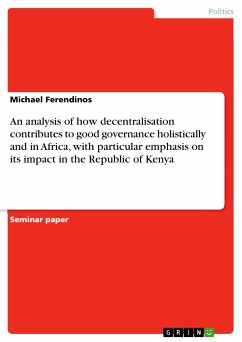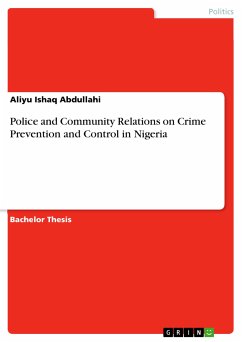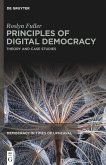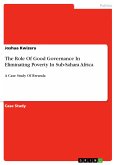Scientific Essay from the year 2022 in the subject Politics - Region: Africa, grade: 9.0, , language: English, abstract: This paper examines the principles of Islamic theocracy in its advocacy for a paradigm shift in the Nigerian political system, with a view to engendering good governance. Good governance remains the expectation from every ruling political party, especially in this democratic dispensation of the Nigerian Nation. The need to ensure that the citizenry enjoy the dividends of democracy as often promised during various electioneering campaigns is envisioned to be the motif for different agendas and political slogans by different administrations. Unfortunately, different political agendas have a record of setback in the history of political leadership and governance in Nigeria. The Nigerian state from independence has experienced a number of forms in the governance of its citizenry. A cursory assessment of its state politically and socio-economically reveals that it has grown from struggle to trouble and from bad to worse. This recorded retrogression by the Nigerian nation over a period of its corporate existence as a political entity is to be partly blamed on the systems of government institutionalised so far and partly on the drivers of the institutions engendered by those systems of government. The above painted background informed our proposal of purely Islamized theocracy as a better alternative system of government capable of orchestrating good governance in Nigeria. This proposal cannot be divorced from the truism that there is a Supreme Being behind the existence and creation of Nigeria as a state. A paradigm shift, as the vocal point of this paper, will be examined by briefly looking at governance in Nigeria, democratic rule and the Nigerian nation, theocratic conceptualization of governance, Islamic principles of theocracy towards enhancing good governance in Nigeria and implementation of Islamic theocracy in Nigeria. Our discussion of these sub-topics gives rise to some recommendations and followed by conclusion.
Dieser Download kann aus rechtlichen Gründen nur mit Rechnungsadresse in A, B, BG, CY, CZ, D, DK, EW, E, FIN, F, GR, HR, H, IRL, I, LT, L, LR, M, NL, PL, P, R, S, SLO, SK ausgeliefert werden.

